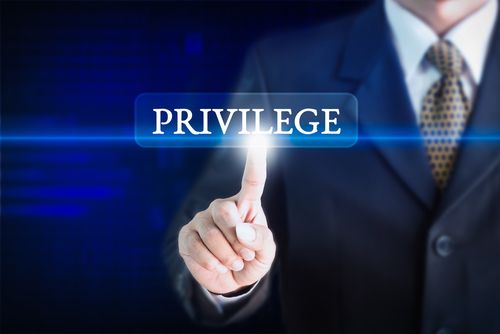 Many faith communities want to work toward racial justice. They are committed to learning how to foster open communication and resist oppression, particularly in the way the church itself functions. One of the first steps for getting members on board for the changes church leaders hope to make is helping them recognize the benefits they receive in society that others may not. In racial reconciliation efforts, these benefits are referred to as white privilege. If your church wants to be effective in inclusion of people of all races, it cannot ignore the responsibility of white members to recognize privilege and work toward equity without centering white experience. This can be more difficult than it seems on the surface.
Many faith communities want to work toward racial justice. They are committed to learning how to foster open communication and resist oppression, particularly in the way the church itself functions. One of the first steps for getting members on board for the changes church leaders hope to make is helping them recognize the benefits they receive in society that others may not. In racial reconciliation efforts, these benefits are referred to as white privilege. If your church wants to be effective in inclusion of people of all races, it cannot ignore the responsibility of white members to recognize privilege and work toward equity without centering white experience. This can be more difficult than it seems on the surface.
Recognition
Many people, even those who recognize that racism still exists as a force in society, balk at the idea that they are privileged. They see their own experience of having worked hard for what they have and are resistant to the idea that anything has been handed to them. It can be difficult for them to recognize obstacles they didn't have to overcome.
To refuse to recognize privilege, however, is to risk becoming complicit in maintaining the obstacles that BIPOCs frequently encounter. Therefore, anti-oppression work requires recognition. While books such as "White Fragility" attempt to inform readers about white privilege, they often fall short by centering white experience or overgeneralizing to the point of infantilizing the oppressed. A better way to reveal the existence of privilege may be through readings that center aspects of the BIPOC experience:
- "Fatal Invention" by Dorothy Roberts
- "When They Call You a Terrorist" by Patrisse Kahn-Cullors and Asha Bandele
- "Why Are All the Black Kids Sitting Together in the Cafeteria?" by Beverly Daniel Tatum, PhD
- "This Muslim American Life" by Moustafa Bayoumi
- "An Indigenous Peoples' History of the United States" by Roxanne Dunbar-Ortiz
In reading, talking and learning about BIPOC history and experience in this country, it is easier for white members of your congregation to identify issues they have the privilege of not having to address. As an added bonus, this approach can also relieve some of the defensiveness white people may exhibit regarding the topic of antiracism.
Response
While the first step in addressing white privilege is awareness of the problem and honest self-reflection about ways they may have contributed to it, it is not fruitful for white people of faith to get stuck there. There must be a commitment to actively dismantling the parts of various systems that perpetuate inequity. The uncomfortable truth is that your church or denomination is likely one of these systems.
As members become more informed and aware of issues, you should not be surprised when they start examining how your church functions. Expect members to respond by making suggestions about changes your church needs to make, particularly as it affects their specific roles. For example, the prison ministry may petition for the church to have a stronger role in bail relief or a letter-writing campaign to lawmakers who uphold unjust policies. Members may call into question the way the church allocates its budget or why its staff roster lacks diversity. Fight the urge to rush to the church or denomination's defense. The way church leaders respond will reveal whether racial justice is a real commitment or just something to which they pay lip service.
The denial of white privilege is a common barrier to the work of antiracism. Church leaders can play an instrumental role in removing it. Encouraging members to not only understand their privilege but also learn what they can do to narrow or eliminate the societal benefits gap it produces is essential work for any church that professes a God who loves all people.



